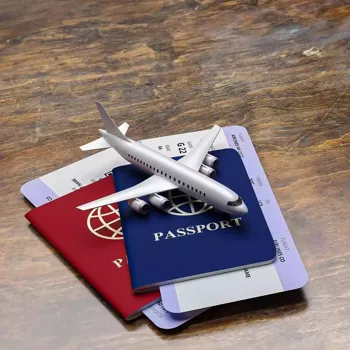Embark on an Indian Adventure: Choosing the Best Travel Insurance for Your Trip - Your guide to a worry-free journey!
Planning a holiday, eh? Fantastic! Whether you're off to the serene beaches of Goa,
the majestic Himalayas, or exploring ancient ruins in South India, a trip can do wonders for the soul.

But before you pack your bags and book those flights, there's one crucial thing often overlooked: Travel Insurance. Think of it as your safety net, your 'insurance' against unexpected hiccups that could spoil your well-deserved break.
Choosing the right travel insurance can be a bit confusing, with so many options available. But don't worry, we're here to simplify things with these 7 tips to help you pick the best plan for your Indian adventures.
Assess Your Needs: What kind of traveler are you?
The first step to finding the right travel insurance is understanding your specific needs. Are you a budget backpacker staying in hostels or a luxury traveler opting for five-star hotels?

Are you planning adventurous activities like trekking or scuba diving, or will you be mostly relaxing and sightseeing? Consider the duration of your trip, your destination, and your pre-existing health conditions. All these factors will influence the type of coverage you need.
For instance, if you're planning a high-altitude trek, ensure your insurance covers emergency evacuation and related medical expenses. If you have a pre-existing condition like diabetes, you might need a policy that specifically covers complications arising from it.
Taking the time to analyze your travel style and needs will help you narrow down your options and choose a plan that offers the right level of protection.
This personalized approach is far better than blindly opting for the cheapest plan available, which might leave you inadequately covered in case of an emergency. Furthermore, think about the value of your belongings.
If you're carrying expensive electronics or jewelry, ensure your policy covers loss or theft, or consider adding extra coverage for these items. Remember, travel insurance is an investment in your peace of mind, so don't skimp on coverage just to save a few rupees.
Coverage is Key: What does the Policy actually cover?
Don't just look at the price of the travel insurance, Dive deep into the policy document and understand what exactly is covered. Look for coverage for medical emergencies, including hospitalization, doctor visits, and ambulance services.
Check if the policy covers pre-existing conditions, if applicable. Ensure it includes coverage for trip cancellations or interruptions due to unforeseen circumstances like illness, natural disasters, or flight delays.
Baggage loss or delay is another important aspect to consider, especially if you're carrying valuable items. Also, check for personal liability coverage, which can protect you if you accidentally cause damage to someone else's property or injure someone.
Pay close attention to the limits of coverage for each category. For example, a policy might cover medical expenses up to a certain amount, or baggage loss up to a certain value. Make sure these limits are adequate for your needs.
Don't hesitate to ask the insurance provider for clarification if you're unsure about any aspect of the coverage. A comprehensive policy should provide coverage for a wide range of potential problems, giving you peace of mind throughout your trip.
Remember, the goal is to be prepared for the unexpected, so choose a policy that offers thorough and reliable protection. Read the fine print carefully!
Compare and Contrast: Don't settle for the first option.
With so many travel insurance providers in India, it's crucial to compare different plans before making a decision. Don't just settle for the first option you come across. Use online comparison tools to get quotes from multiple insurers and compare their coverage, premiums, and terms.
Pay attention to the policy wording and exclusions, as these can vary significantly between different plans. Look for policies that offer good value for money, balancing comprehensive coverage with a reasonable premium.
Consider factors like claim settlement ratios, customer service reputation, and ease of filing a claim. Read online reviews and testimonials from other travelers to get an idea of their experiences with different insurance providers. Don't be afraid to negotiate with insurers to get a better deal.
If you find a cheaper quote from another provider, see if your preferred insurer is willing to match it. Remember, the key is to find a plan that meets your specific needs and budget while providing adequate protection. Take your time, do your research, and make an informed decision.
Comparing different options is the best way to ensure you're getting the best possible value for your money. A little effort in comparing plans can save you a lot of trouble and expense in the long run.
Check the Fine Print: Exclusions and Limitations are Key.
Travel insurance policies often have exclusions and limitations that you need to be aware of. These are specific situations or events that are not covered by the policy.
Common exclusions in travel insurance policies include: participation in extreme sports or activities without appropriate coverage, pre-existing medical conditions that are not declared, injuries sustained while under the influence of alcohol or drugs, and losses arising from illegal activities.
It's important to carefully read the policy document and understand these exclusions before you purchase the insurance. If you're planning to participate in any risky activities, make sure your policy specifically covers them.
If you have a pre-existing medical condition, check if the policy covers complications arising from it. Be aware of any limitations on coverage, such as maximum claim amounts or waiting periods. Ignoring the fine print can lead to unpleasant surprises when you need to file a claim.
Understanding the exclusions and limitations will help you avoid any disappointments and ensure that you're adequately covered for your trip. Don't hesitate to ask the insurance provider for clarification if you're unsure about any aspect of the policy.
It's better to be informed and prepared than to be caught off guard later.
Claim Process: How easy is it to claim?
A travel insurance policy is only as good as its claim settlement process. Find out how easy it is to file a claim with the insurance provider. Check if they have a 24/7 helpline and online claim filing options.
Read online reviews and testimonials from other travelers to get an idea of their experiences with the claim process. Look for insurers with a reputation for prompt and efficient claim settlements. Understand the documentation and information required to file a claim.
Keep copies of all relevant documents, such as medical bills, police reports, and flight tickets, in a safe place. Be aware of the deadlines for filing a claim. Some policies require you to file a claim within a certain timeframe after the incident occurs.
Make sure you understand the claim process and have all the necessary information ready in case you need to make a claim. A smooth and hassle-free claim process is crucial to ensure that you receive the benefits you're entitled to under your travel insurance policy.
Don't just focus on the price of the insurance; also consider the ease and efficiency of the claim process.
Consider Add-ons: Enhance Your Coverage if needed.
Basic travel insurance policies may not cover all your needs. Consider adding optional add-ons to enhance your coverage based on your specific travel plans. For example, if you're traveling with expensive electronics, you might want to add coverage for loss or damage to these items.
If you're planning to participate in adventurous activities, you might need to add coverage for adventure sports. If you're concerned about flight delays or cancellations, you might want to add coverage for trip interruption.
Other common add-ons include rental car coverage, personal liability coverage, and coverage for pre-existing medical conditions. Assess your needs and consider adding any add-ons that you feel are necessary to provide adequate protection for your trip.
Remember, it's better to be over-prepared than under-prepared when it comes to travel insurance. Adding a few extra layers of coverage can give you peace of mind and protect you from unexpected expenses. Carefully review the available add-ons and choose the ones that are most relevant to your travel plans
Read Reviews and Ratings: See What Others Say.
Before finalizing your travel insurance policy, take some time to read online reviews and ratings of different insurance providers. See what other travelers have to say about their experiences with the insurer's coverage, claim process, and customer service.
Look for reviews that mention both positive and negative experiences. Pay attention to the overall rating and the number of reviews. A higher rating with a larger number of reviews is generally a good sign. Be wary of reviews that seem too good to be true or that are overly negative.
Use multiple sources to get a balanced perspective. Websites like Consumer Affairs, Trustpilot, and MouthShut are good places to find travel insurance reviews.
Reading reviews and ratings can give you valuable insights into the real-world experiences of other travelers and help you make an informed decision about which insurance provider to choose. Remember, real-world feedback can be incredibly valuable in making the right decision.
So, there you have it! Seven simple yet effective tips to help you choose the best travel insurance for your Indian adventure. Remember, it's not just about finding the cheapest policy; it's about finding the plan that offers the right level of coverage and protection for your specific needs.
Happy travels, and stay safe!
AI Generated Content. Glance/InMobi shall have no liability for the content











